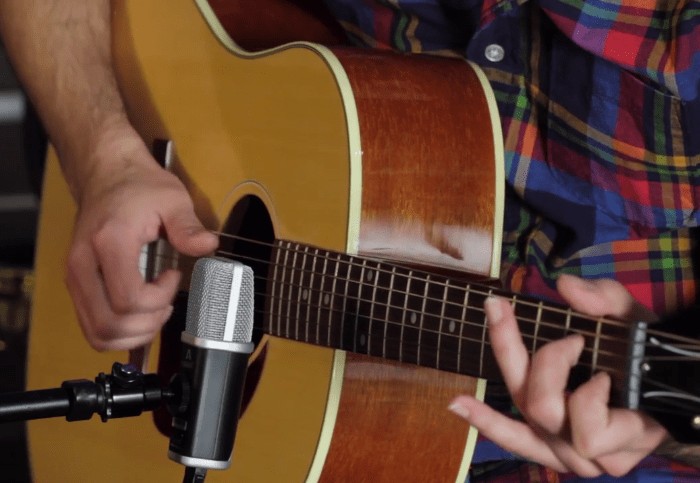One of the most common questions aspiring guitarists ask is, “Can I Learn To Play Electric Guitar First?” The internet is rife with advice suggesting beginners should start with an acoustic guitar. This article debunks that myth and explores the pros and cons of learning on each type of guitar, empowering you to choose the instrument that best fuels your musical journey.
The Acoustic First Myth: Fact or Fiction?
The prevailing wisdom suggests starting with acoustic guitar builds a stronger foundation due to its greater physical demands. The logic is that mastering the acoustic’s thicker strings and wider neck will make transitioning to electric guitar easier. While there’s some truth to the increased finger strength needed for acoustic, it doesn’t necessarily translate to a superior learning experience. Many successful guitarists began their journey on electric guitars and seamlessly transitioned to acoustic later. The core principles of guitar playing—chords, scales, and technique—remain the same regardless of the instrument.
The key difference lies in the nuances. Acoustic guitars require a firmer touch and potentially slight adjustments in fingering due to the wider neck. However, these adjustments are easily adaptable once the fundamental skills are established.
Electric Guitar Without an Amp: Is It Possible?
Another common misconception is that learning electric guitar necessitates an amplifier. While an amp undeniably enhances the playing experience by providing volume and allowing for sound manipulation, it’s not essential for beginners. Unplugged electric guitars still produce audible sound, albeit quieter than acoustics. This allows beginners to practice chords, scales, and techniques without disturbing others. While an amplifier is recommended eventually, its absence shouldn’t deter aspiring electric guitarists.
Classical Guitar: A Different Path
Classical guitars, with their nylon strings and wider necks, cater to specific genres like classical and flamenco. While the softer strings might seem easier on the fingertips, the wider neck and specific techniques required for these genres make it a less suitable starting point for those interested in rock, blues, or pop. Unless classical music is your primary goal, opting for an electric or acoustic guitar is generally more appropriate.
Choosing Your First Guitar: Finding Your Inspiration
The ultimate deciding factor should be inspiration. If iconic electric guitarists fuel your passion, starting with an electric guitar will likely be more motivating. Conversely, if acoustic singer-songwriters inspire you, then an acoustic guitar might be the better fit.
Electric vs. Acoustic: Weighing the Pros and Cons
Still unsure? Let’s break down the advantages and disadvantages of each:
Electric Guitar:
Pros:
- Lighter strings make it easier to press down and play.
- Easier to learn lead guitar techniques like bending and tapping.
- More commonly used in bands.
- Offers greater versatility in sound manipulation with effects pedals.
Cons:
- Typically requires an amplifier for performance.
- Slight adjustments in technique may be needed for acoustic guitar.
- Can be heavier than acoustic guitars despite smaller body size.
Acoustic Guitar:
Pros:
- Develops finger strength, potentially easing the transition to electric guitar.
- Doesn’t require an amplifier for practice.
- Well-suited for informal settings and gatherings.
- Ideal for fingerstyle techniques.
Cons:
- Thicker strings can be challenging for beginners.
- Not ideal for certain lead guitar techniques.
- Less versatile in sound compared to electric guitar.
The Final Verdict: Follow Your Passion
Choosing between electric and acoustic guitar ultimately comes down to personal preference and musical goals. Don’t let outdated advice stifle your enthusiasm. Choose the instrument that resonates with you and inspires you to practice. Investing in a quality instrument and seeking guidance from a qualified instructor will significantly contribute to your success, regardless of which type of guitar you choose.

